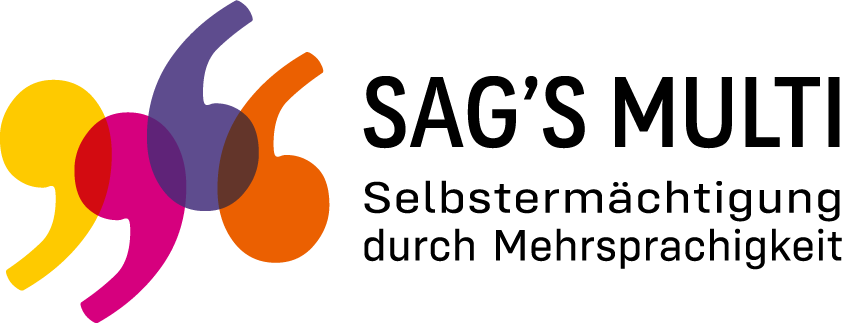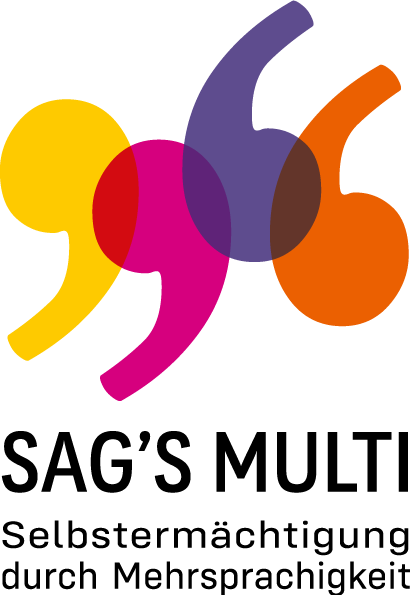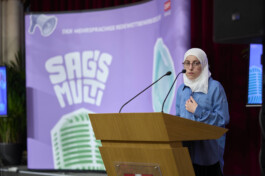










In our migration society, young people are increasingly growing up in a multilingual social environment. Schools must take this into account and support pupils in their multilingual development in order to increase equity. Pupils can only realise their multilingual potential for their educational biography and their professional career if their multilingualism is recognised as a resource and supported throughout.
The multilingual speech contest SAG'S MULTI has been promoting multilingualism since 2009 and is hosted by the Austrian Broadcasting Corporation (ORF), a key partner in this project. SAG’S MULTI provides young people with a stage where they can demonstrate their skills in German and an additional language, express their opinions and share their experiences. Participants have showcased over 90 languages to date.
This project is conducting the first academic analysis of the SAG’S MULTI speech contest. It explores the extent to which SAG’S MULTI is empowering, strengthens the (linguistic) self-image of young people, and provides them with a positive experience of their multilingualism.
In this context, we aim to answer the following questions:
What are the experiences of SAG'S MULTI participants in their educational and professional careers with regard to their multilingualism and the appreciation and promotion of their multilingual repertoire?
What significance did participating in SAG'S MULTI have for their educational and professional careers?
Which recommendations and measures can we derive from the systematically analysed experiences for promoting multilingualism at school?
The insights gained aim to transform schools into more language-friendly learning environments that recognise and actively support multilingualism in all its forms.
The first step is a survey of all previous participants of SAG'S MULTI, focusing on their experiences in school and professional life.
Additionally, pupils from our two partner schools conduct narrative interviews with selected participants, focusing on their language biographies. Our research team guides and supports the pupils throughout the process. These interviews will then allow us to go into greater depth.
Pupils, teachers, school developers and researchers collaborate in analysing the collected data in order to develop measures for promoting multilingualism at school.
Pupils get the opportunity to write their final school leaving projects (Abschließende Arbeit) on topics related to multilingualism with support from the project team.
Teacher training students create classroom materials focused on empowerment through multilingualism based on the research findings.
Findings are shared via a robust network of educational and media partners.
In line with the citizen science approach, pupils from two partner schools in Vienna act as co-researchers and focus on the key questions in cooperation with the scientific team at the University of Vienna.
SAG'S MULTI itself, as well as the collaboration on this project, thus has a self-empowering effect, strengthens young people's self-concept, and represents a positive experience of their multilingualism.